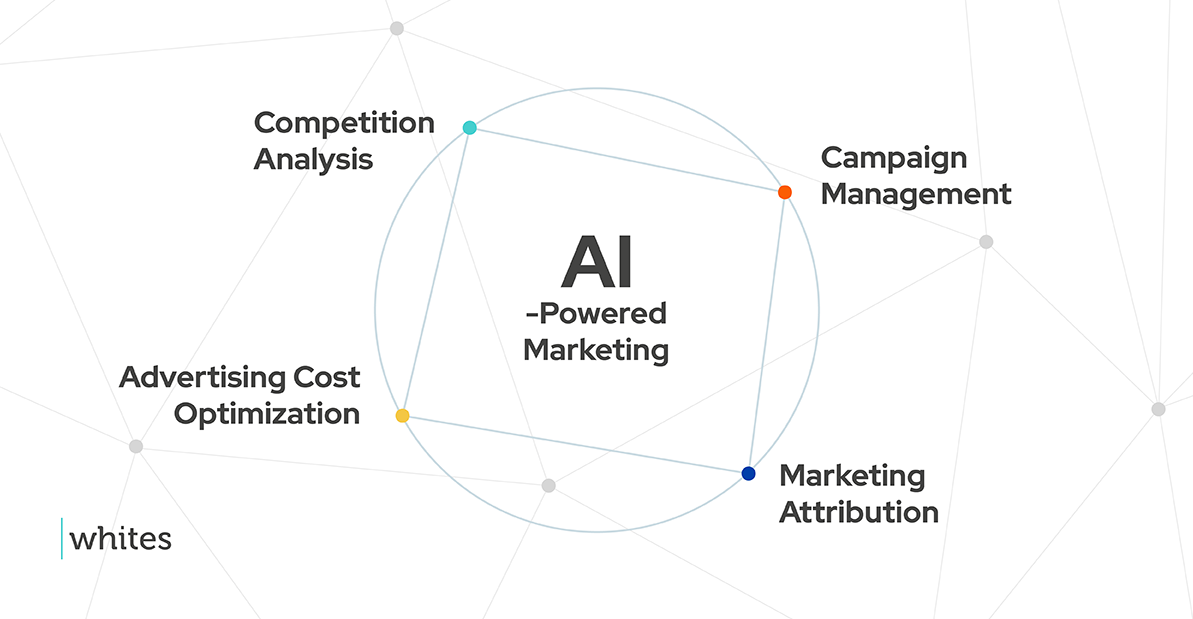AI marketing tools enable marketers to work smarter, faster, and more efficiently – this includes predictive analytics and customer insights; personalized experiences for their target customers; automated decision making capabilities – helping marketers be more agile.
AI can automate some tasks, like data analysis, but cannot replace human marketers. Marketers must continue contributing creatively and strategically through AI insights into their campaigns.
Predictive Models
Predictive models enable marketers to better understand customer needs, enabling them to design more tailored marketing campaigns that hit specific audiences with greater precision and generate higher returns – ultimately leading to happier customers and greater brand loyalty.
Predictive modeling helps businesses anticipate various issues, from future demand for certain products or services to potential risks and opportunities. It is particularly effective for companies dealing with large volumes of data such as retailers and CPG companies, financial institutions (for forecasting loan defaults or price movements of securities) healthcare and insurance providers.
Predictive modeling allows cloth sellers to predict sales of certain clothing by analyzing past seasonality and trends, which allows them to stock the appropriate inventory at the appropriate time. Predicting consumer buying behavior also enables businesses to fine-tune targeted marketing techniques that enhance customer attachment rate while increasing sales.
Predictive analytics can be accomplished with predictive modelling techniques like decision trees and random forests, or time series predictive analysis which examines data over an extended period. Other options for predictive analytics include feature selection – which reduces complexity by discarding features that don’t contribute directly to model prediction without decreasing accuracy – or feature mining, which involves uncovering hidden features by mining large volumes of textual data collected over time.
Machine Learning
Machine learning in marketing is an extremely useful tool that automates data analysis and campaign optimization, helping marketers improve ad targeting, personalization and engagement while simultaneously scaling marketing efforts and increasing ROI.
Personalization has become an indispensable aspect of effective marketing. AI and machine learning technologies allow marketers to personalize content on a large scale, providing tailored messages that speak directly to individual customers – for instance, personalized emails typically result in six times higher transaction rates compared to non-personalized messages.
By analyzing customer data, machine learning algorithms can predict which content will appeal to each person at what times, enabling brands to deliver the right message at just the right moment for increased engagement and conversions. They also allow marketers to optimize campaigns on-the-fly for faster results at greater ROI.
To maximize the advantages of machine learning (ML), it’s key to select appropriate marketing tools and platforms. When selecting these, look for those offering both AI and ML capabilities, along with training and support services to your team members. Furthermore, make sure data quality is prioritized through data governance practices, while gradually introducing machine learning (ML) into marketing strategies through pilot projects; by doing this you’ll build trust in its workings while building confidence in it yourself.
Data-Driven Decision-Making
Development and implementation of an effective data strategy is no small undertaking for any company, but thanks to advanced analytics technologies and AI it’s now easier than ever for businesses of all sizes to leverage data insights for improved business outcomes.
Being data-driven involves making decisions based on evidence and patterns rather than emotion or biases, and empowering your team members to make informed choices backed by metrics aligned with business goals and objectives. Tools and technology are key components of being data-driven; but setting clear guidelines for data usage as well as providing necessary training are just as crucial for success.
Rather, use data to support and question decisions within your organization, and encourage a culture focused on data. When paid ads don’t meet expectations or organic search outperforms paid ads, adjust budget accordingly or explain why. By using data as the foundation of decisions and challenging your assumptions with evidence-backed solutions, you can foster an environment focused on evidence.
Becoming more data-driven requires dedicating a portion of your efforts toward tracking and understanding performance, setting clear governance policies to collect, analyze and store decision-making data according to industry best practices – this ensures it remains accurate, up-to-date and actionable.
Personalized Experiences
AI in marketing can be an invaluable asset in optimizing customer journeys. AI-enabled automation of data analysis and content production as well as enhanced personalization to customer engagement efforts make AI an indispensable asset.
McKinsey reported in 2018 that among all business functions, marketing stands out as having the greatest opportunity to leverage artificial intelligence (AI). AI can automate repetitive tasks that consume team members’ time so they can devote it more strategically; additionally it can analyze large volumes of real-time data to detect user patterns for accurate, dynamic personalization that gradually gets better over time.
AI platforms may use sentiment analysis to scour social media posts, gathering customer comments and feedback in real time to understand real brand perception and market trends, which in turn allows them to adjust pricing according to current conditions and customer demands.
Digital marketers should carefully plan how they plan to implement AI into their customer journey, prioritizing areas most relevant for driving performance and growth. This ensures they don’t become overwhelmed with managing multiple AI tools at the same time. Furthermore, when selecting an AI marketing partner they must prioritize transparency and privacy to protect proprietary customer data that builds trust between themselves and customers, strengthening relationships that strengthen long-term customer relations.




